Prof Dan Hough proudly reports on the first set of students to graduate from the University of Sussex’s LLM in Corruption, Law and Governance in Doha, Qatar
The University of Sussex is based in the tranquil settings of the South Downs in the UK, faculty members and students nonetheless are acutely aware that many of the problems that get discussed there are global in nature and scope. That is nowhere more evident than in the international fight against corruption.
The University of Sussex, via the Sussex Centre for the Study of Corruption(SCSC), has developed an impressive portfolio of undergraduate, postgraduate study and research in this area. Undergraduates in the Department of Politics, for example, are able to specialise in analysing the corruption challenge via bespoke modules. That can include analysing corruption in international business or more putting more political types of corruption under the analytical microscope.
Masters’ Level Study of Corruption and Anti-Corruption
Since 2012 Sussex has offered an MA in Corruption and Governance, and come September 2019 a distance-learning programme of the same name will be on stream. November 2018 saw Sussex proudly welcome graduates from the third of its Masters’ level programmes; the LLM in Corruption, Law and Governancetaught out of the Rule of Law and Anti-Corruption Centre(ROLACC) in Qatar.
The programme is a joint initiative (with ROLACC) that was launched in 2016. The Attorney General of Qatar, Dr. Ali bin Fetais Al-Marri, has been pivotal to helping set up this uniquely interdisciplinary LLM and he, alongside the University of Sussex’s Vice-Chancellor, Professor Adam Tickell, oversaw the graduation ceremony.
The aim of the course is to help students based in the Middle-East understand just a little more about the how best to conceptualise and ultimately tackle corruption. The programme doesn’t offer a simply toolkit of what to do to tackle malfeasance. Such a toolkit simply isn’t available. Rather, it helps students understand the different forms that corruption takes, why they are so difficult to counteract and what can, can’t and might be feasible in trying to do something about them.
15 students from as far afield as Sudan and the USA, Ghana and of course Qatar completed the two year, part-time programme. Pheobe Ofori-Atta had the honour of both graduating with the highest overall grade and the best dissertation mark.
The programme, now in its third year, continues to welcome students from Doha and farther afield. Further questions about it can be directed either to the Director of the SCSC, Dr. Liz David-Barrett or to the Convenor of the Programme itself, Professor Dan Hough.


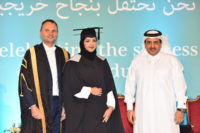
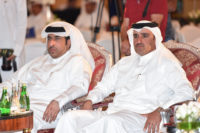

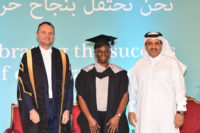
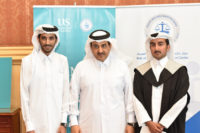
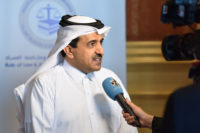
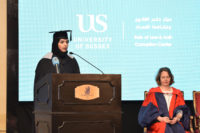
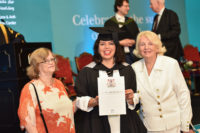
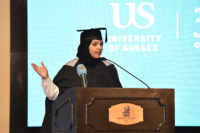
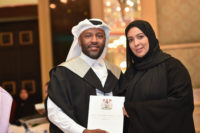
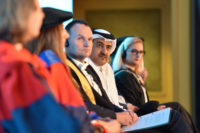
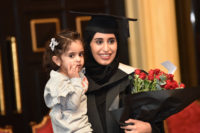
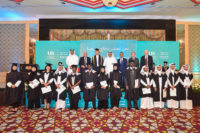
Leave a Reply